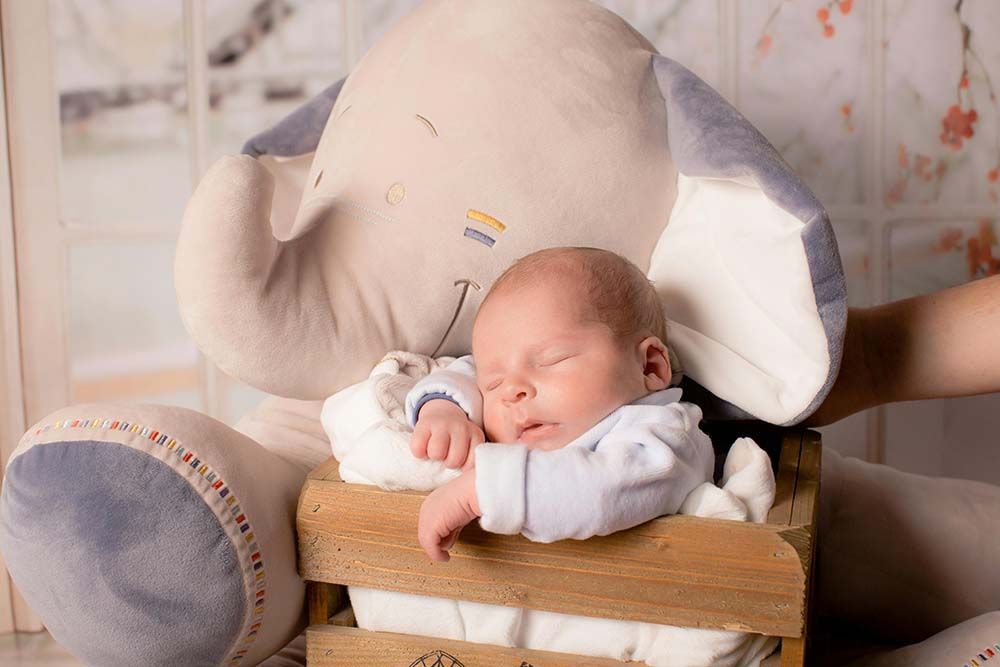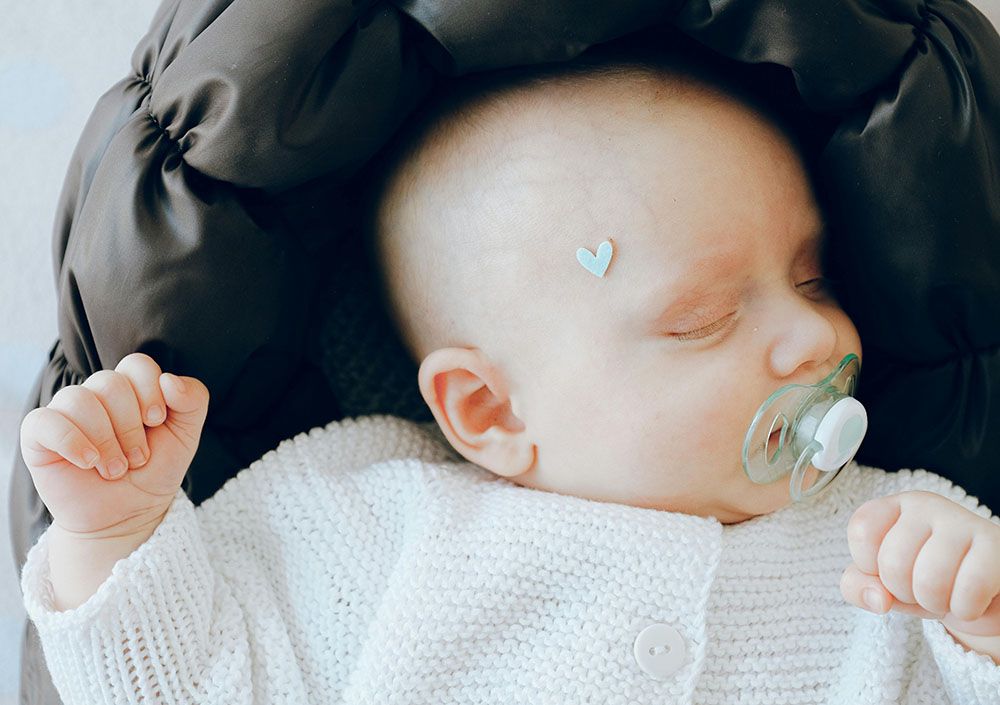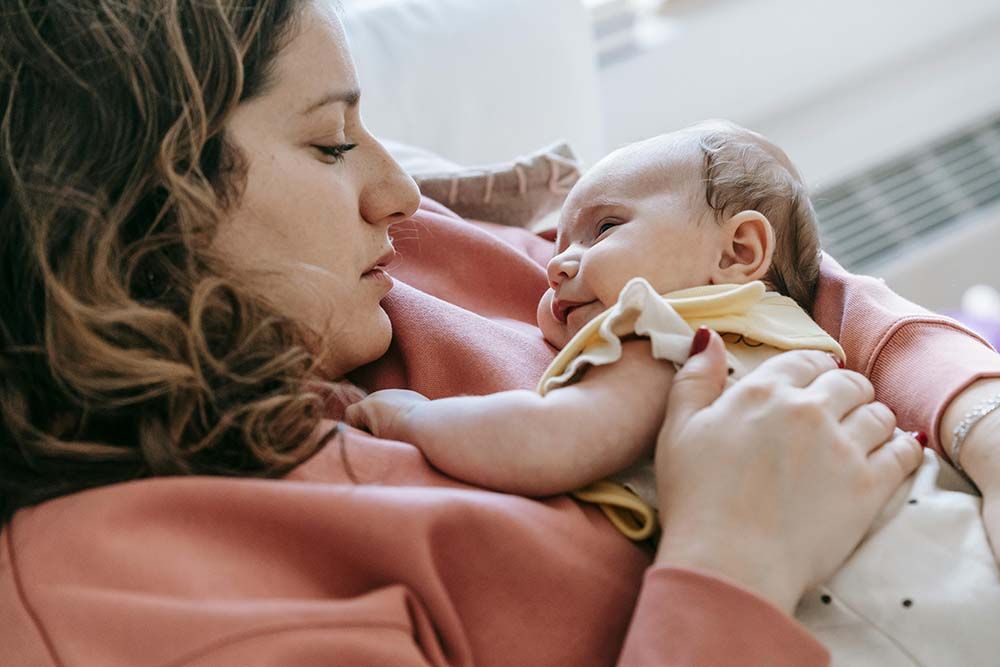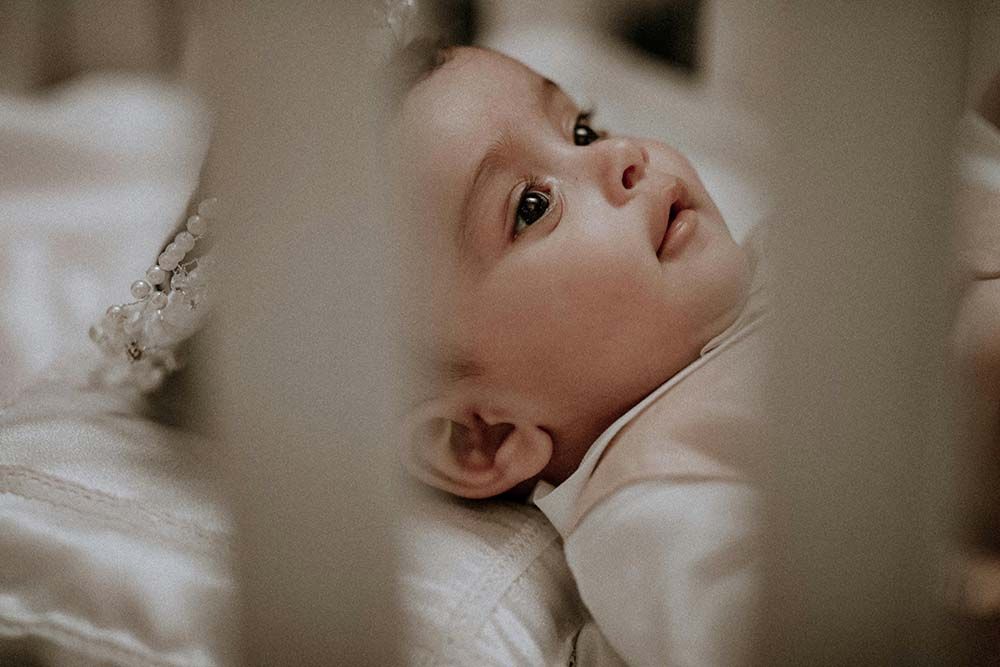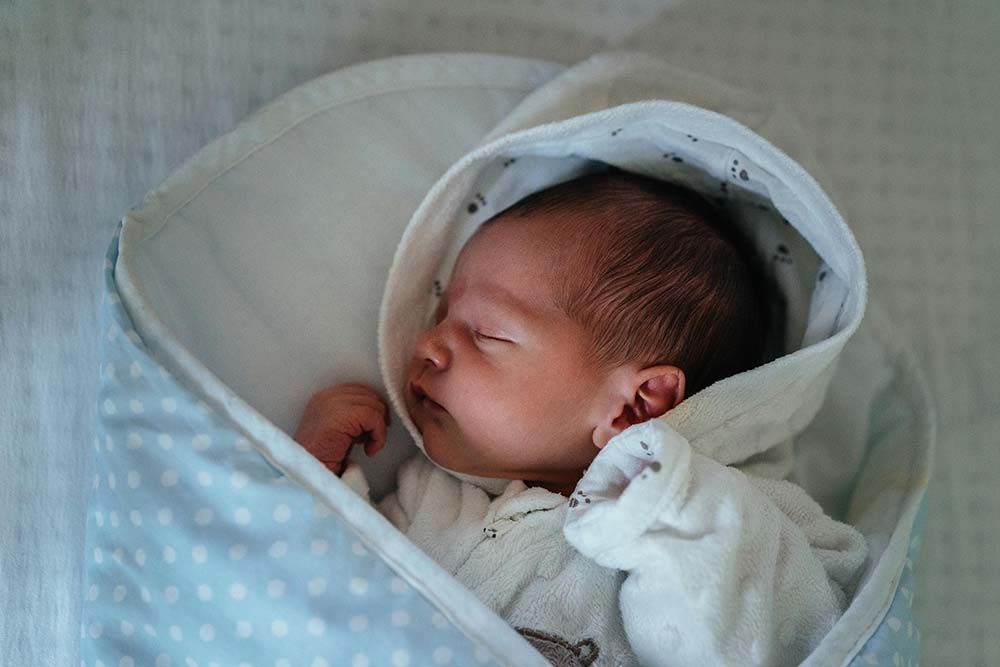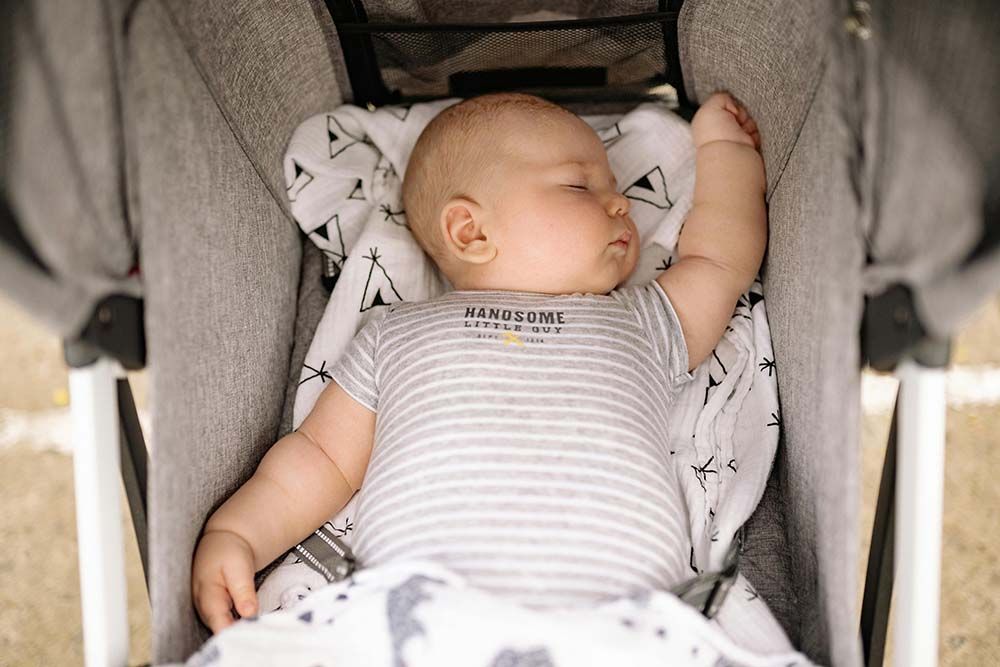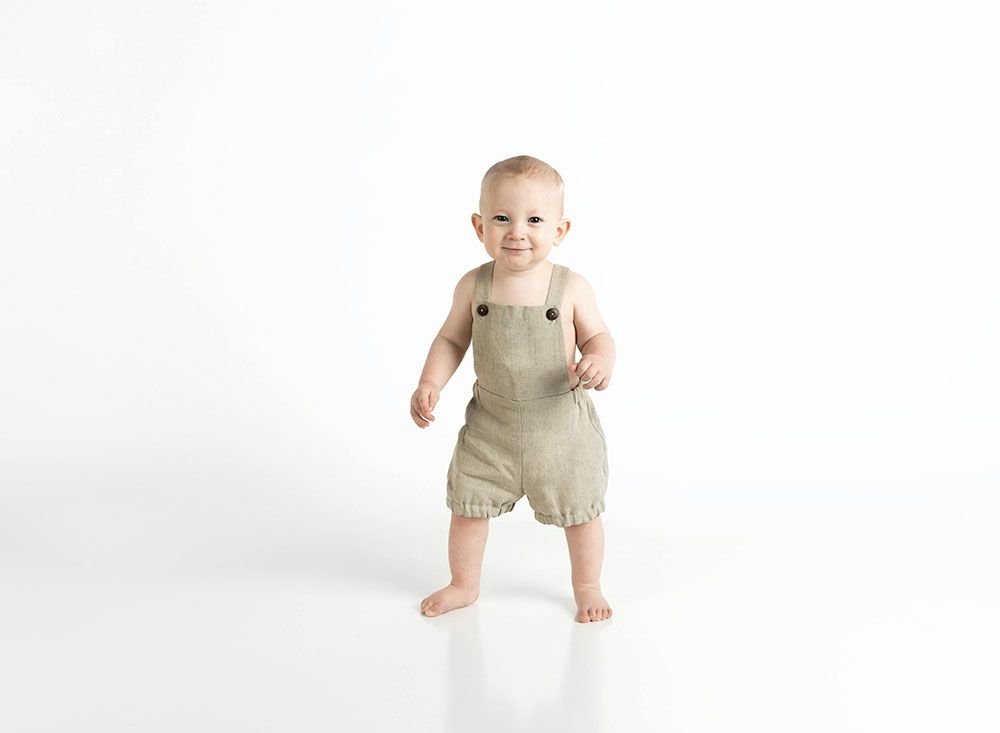

At nine months, it is visible that your baby shows increasing curious about the near environment, and is experiencing significant cognitive and physical development. All these can influence their sleep patterns. Establishing a consistent sleep schedule can support healthy growth and development. Let's explore what you can expect and how to navigate this crucial period.
Navigating the sleep needs of a 9-month-old requires understanding and flexibility. Each baby is unique, and their sleep patterns can vary widely. Therefore, meeting each baby's personal requirements is not an easy task. If you are bothered by sleep issues, consulting with a pediatrician or a professional parenting app called Moonycare, which can provide additional scientific support and guidance.
IN THIS ARTICLE:
What are Wake Windows for a 9 Month Old?
A Sample Sleep Schedule for 9 Month Old Babies
How Much Should a 9 Month Old Sleep?
How Long Should a 9 Month Old Nap?
How Many Naps are Suitable for a 9 Month Old?
Can you Sleep Train a 9-Month-Old?
Is there Sleep Regression for 9 Month Old Babies?
What are Wake Windows for a 9-Month-Old?
Wake windows, which is the intervals your baby is awake between sleep periods. It becomes increasingly predictable as your baby approaches nine months. For a 9-month-old, it generally ranges from 2.5 to 3.5 hours, depending on individual needs and daily variations. Normally, when reaching the end of a wake window, baby will show the signs of fatigue, such as rubbing their eyes or becoming more irritable You can observe and take actions to these signs in time, which helps prevent overtiredness and improve sleep quality.
Sample 9-Month-Old Sleep Schedule
A typical day for a 9-month-old might follow a schedule like this:
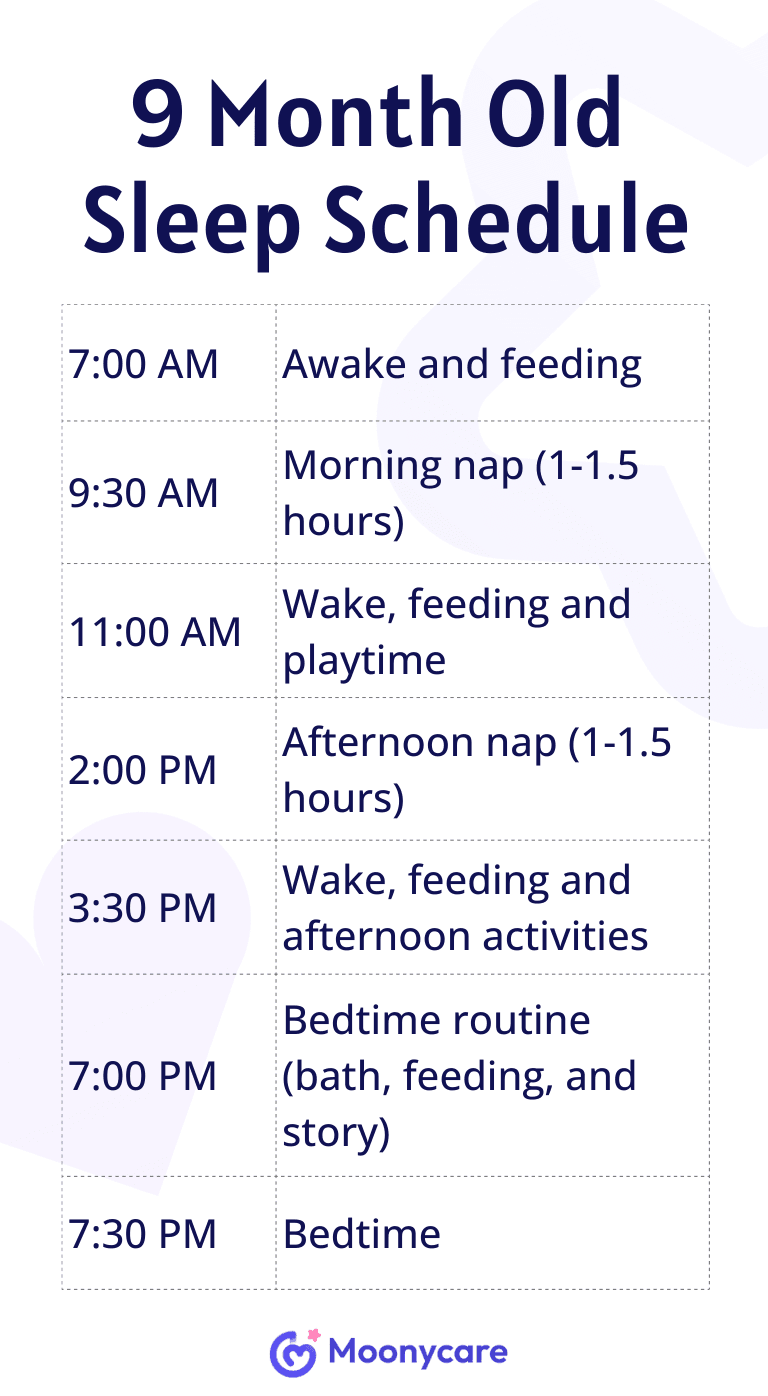
This schedule provides an exemplary schedule to show what a day look like for a 9-month-old. You can take it as a reference and customize a suitable one based on your baby's habits.
How Much Should a 9-Month-Old Sleep?
On average, a nine-month-old baby needs around 13-15 hours of sleep in a 24-hour period. This includes both nighttime sleep and daytime naps. It's essential to note that every baby is unique, and some may require slightly more or less sleep. The goal is to ensure your baby gets enough rest to support their rapid development during this period.
How Long Should a 9-Month-Old Nap?
Naps at this age typically last between 2.5 to 3 hours, although some babies might nap for shorter or longer durations. Ensuring the last nap is not too late in the afternoon, preventing difficulties with settling down at night and maintaining a smooth bedtime routine.
How Many Naps are Expected for a 9-Month-Old?
By nine months, most babies consolidate their sleep into two naps per day. The morning nap usually happens around 2.5 to 3 hours after waking, while the afternoon nap follows another 2.5 to 3 hours after the first nap. This structure helps distribute their sleep needs throughout the day, preventing overtiredness and promoting better nighttime sleep.
Can You Sleep Train a 9-Month-Old?
Nine months is an appropriate age to introduce or continue sleep training if you haven't already. At this stage, babies are capable of self-soothing and can often sleep through the night without feeding. Sleep training methods vary, including the Ferber method, gradual extinction, and the chair method. Choosing a method that aligns with your parenting style and your baby's temperament. Consistency and patience are key, as babies may have a hard time with the new sleep habits at the initial weeks.
Is There a 9-Month Sleep Regression?
Many babies show obvious behaviour towards sleep regression at this time. For example, your baby may resist naps, wake more frequently at night, or have difficulty falling asleep. This regression can be attributed to significant developmental milestones, such as crawling, standing, and babbling. These new skills can excite your baby, making it challenging for them to settle down for sleep. But don't worry because this period will not last too long. To overcome this period smoothly, you can maintain your baby's sleep routines consistently.
9-Month-Old Sleep Tips
It may be a bit challenging to navigate a 9-month-old baby to sleep, perhaps you can try the following tips to help:
Establish a Consistent Bedtime Routine: A calming routine that includes activities like bathing, reading, or gentle rocking can give you baby an indication to prepare for falling sleep.
Create a Comfortable Sleep Environment: A dark, quiet room with a comfortable temperature can aid in better sleep. White noise machines can also help block out household noises.
Encourage Self-Soothing: Allow your baby some time to fall asleep on their own. This skill is crucial for them to be able to soothe themselves back to sleep if they wake during the night.
Monitor Daytime Activity: Ensure your baby gets plenty of physical and mental stimulation during the day. This can help them feel tired and ready for sleep at bedtime.
Limit Late Afternoon Naps: To avoid bedtime battles, try to ensure that the last nap of the day ends at least three hours before bedtime.
Be Patient During Regressions: Remember that sleep regressions are temporary. Consistency and patience are key during these times.
Final Thoughts
At nine months, babies are more aware of their surroundings and may experience separation anxiety, which can impact sleep. It is also important to make appropriate response to your baby's needs while encouraging independence. It's also an crucial time when their sleep patterns can become more regular.
This comprehensive article is designed to provide parents with a well-rounded understanding of a 9-month-old's sleep schedule, including practical tips and insights. The aim is to support parents in creating a sleep environment and routine that fosters healthy sleep habits, helping both baby and parents enjoy better rest.







